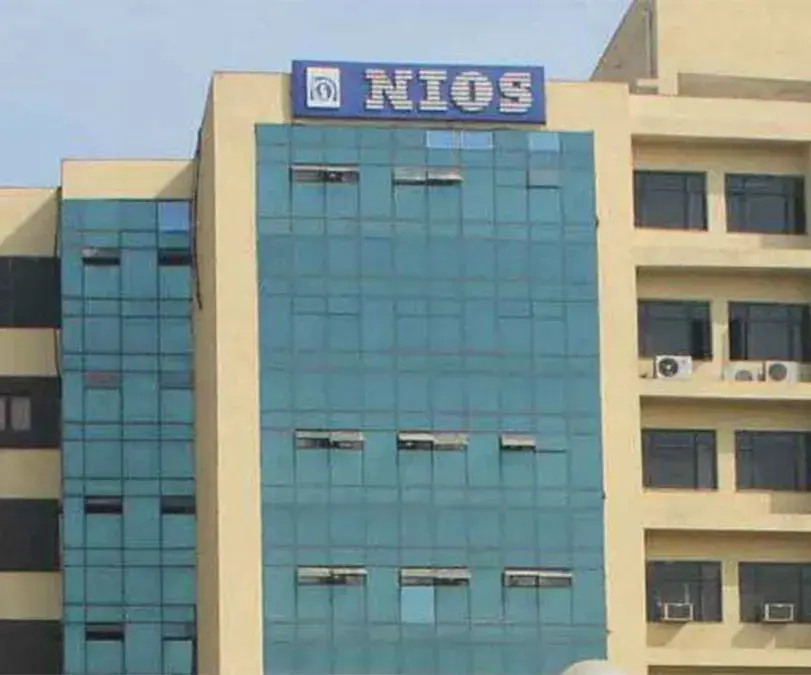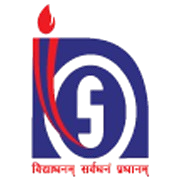
National Institute Of Open Schooling Secondary
- Affordable fee structure
- Government-recognized
- Wide course selection
- Study centers nationwide
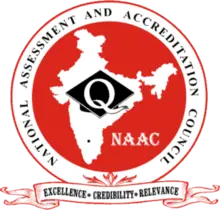
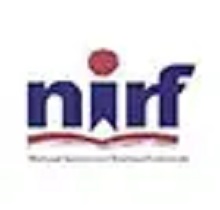
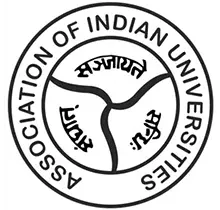
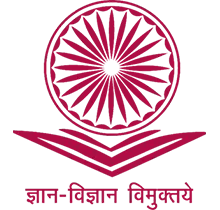
About
Secondary Education
The tenth standard is equal to this course. From the Scheme of Studies listed in Table, you can select subjects. Nevertheless, in order to receive certification, you must successfully finish at least five subjects in at least one language, or at most two languages.
Senior Secondary Education
This course is intended for students who wish to continue their study toward a Senior Secondary
Certification, which is equivalent to the XII standard, after passing the 10th standard or an equivalent exam from an accredited board.
You can select topics from the Table & Scheme of Studies. However, in order to receive certification, you must successfully finish at least five subjects in at least one language, or at most two languages.
Table 1 displays the Secondary and Senior Secondary Course Scheme of Studies. The student must pass at least five subjects, including at least two languages from Group and the remaining three or four from Group in order to receive a Pass Certificate. A student may, however, select a maximum of seven subjects, as they are permitted to enroll in up to two extra subjects.
| Course | Subject Offered | Scheme of Studies |
| Secondary |
Group-A: Hindi(201), English(202), Bengali(203), Marathi(204), Telugu(205), Urdu(206), Group-B : Mathematics(211), Science and Technology(212), Social Science(213), |
|
| Senior Secondary |
Group-A : Hindi(301), English(302), Bangla (303), Tamil (304), Odia (305), Urdu(306), Gujarati (307), Sanskrit (309), Punjabi (310) Group-B : Mathematics(311), Home Science(321), Psychology(328) , Geography(316), Data entryOperation(336) Group-D :Chemistry(313), Political Science(317),Mass Communication (335),Military Studies(374) Group-E : Biology(314), Group-F: Computer Science(330), Sociology(331), Tourism(337), Physical Education and Yog(373) Learner can opt only one subject from each of Group C,D,E and F |
Subjects with have theory as well as practical works.
- In the Certificate, mention of "Indian Knowledge Tradition" will be
made on successful completion of above four subjects along with Sanskrit Language subject at. - Secondary/Senior Secondary level. These subjects are available in Sanskrit medium only.
Who Can Apply ?
In the official school system, the Secondary Education program offered by the National Institute of Open Schooling (NIOS) is comparable to Class 10.
The following are the requirements for eligibility to apply:
Age Requirement: As of July 31st of the entrance year, the candidate must have reached the age of 14.
Qualifications for Education: The candidate must have finished eighth grade, or Class VIII, at an accredited school, or Give them a self-certificate attesting to their ability to pursue secondary education.
Required Documents: Evidence of birthdate, such as an Aadhaar card or birth certificate Prior academic records or self-reporting Proof of address.
Other circumstances: Adults who were unable to finish their education earlier may also apply because there is no upper age limit. Students can enroll via NIOS Study Centers or online.
Specialization / Course Fees
For Secondary Education (Class 10) under NIOS, there are no traditional “specializations” like in higher education (such as MBA or B.Tech) , but students can choose subjects based on their interests from different groups.
NIOS offers flexibility in selecting subjects across streams. Subject Groups Available in NIOS Secondary Education NIOS offers two categories of subjects:
1. Compulsory Subjects:
- Language 1 (Hindi, English, Urdu, Sanskrit)
- Language 2 (Hindi, English, Urdu, Sanskrit)
2. Elective Subjects (Choose as per interest):
- Mathematics
- Science and Technology
- Social Science
- Business Studies
- Home Science
- Economics
- Psychology
- Data Entry Operations
- Indian Culture and Heritage
- Painting
Subject Combination Rule
- Minimum 5 subjects (including one language) are required.
- Students can take up to 7 subjects.
Admission Process
For students all around India, NIOS secondary education admissions procedure is easy and entirely online.
By completing their personal and educational information on the official NIOS portal, eligible candidates who must be at least 14 years old can register.
Candidates must provide scanned copies of all necessary paperwork, including evidence of identity, proof of address, and a birth certificate or Class 8 pass certificate.
Students must pay the entrance cost online using a debit/credit card, net banking, or UPI after choosing at least five subjects.
Following application verification, students receive an enrollment number from NIOS and have access to both digital and paper study materials.
The institute also offers Personal Contact Programs (PCPs) for academic support, and learners can appear for examinations through scheduled sessions or On-Demand Exams, ensuring maximum flexibility in continuing education.
Syllabus / Curriculum
At NIOS there are many course programmes being taught.Therefore each course programme the course curriculum is different and for more details visit the official
website of NIOS.
Frequently Asked Questions (FAQ)
1. What is NIOS?
The National Institute of Open Schooling, or NIOS, is an independent agency under the Indian government Ministry of Education. Through open and distance learning, it offers flexible learning opportunities for vocational, life enrichment, senior secondary (Class 12), and secondary (Class 10) programs.
2. Does the government recognize NIOS as a board?
Indeed. The Indian government recognizes NIOS as being on par with the CBSE and
ICSE boards. Higher education, competitive exams (JEE, NEET, UPSC), and government employment all accept NIOS certifications.
3. Who is eligible to enroll in NIOS?
Anyone who is a working professional, dropped out of school, wants to finish their
education at any age (there is no enrollment age limit), or need flexible study in addition to other obligations.
4. Which courses are available at NIOS?
Class 10 Secondary Course; Class 12 Senior Secondary Course
• Open Basic Education • Vocational Courses • Programs for Life Enrichment and Skill Development
5. How can I apply to be admitted to NIOS?
Online admissions are available at nios.ac.in, the official NIOS website.
Actions to take: Register online, upload papers, pay the cost, and choose a study facility and subjects.
6. What is the cycle of admission?
Every year, NIOS offers two entrance blocks:
• Exams in April and May (Admission: April–September) • Block 1
• Exams in October and November (Admission: October–March) in Block 2
7. How are NIOS tests administered?
• There are two examination periods per year: April–May and October–November.
• Exams are administered offline at approved locations; eligible students can also take the On-Demand Examination (ODE).
8. What are the NIOS passing requirements?
• A minimum of 33% in each topic (combined theory and practical)
• You need to pass at least five topics in order to be in Class 12.
9. Can I take the JEE, NEET, UPSC, or other competitive examinations using NIOS?
Indeed. All national-level competitive exams, including JEE, NEET, UPSC, NDA, CAT, and CLAT, as well as entrance to Indian and international universities, accept NIOS diplomas.
10. Does NIOS offer study guides?
Indeed, NIOS offers the following: • Printed study guides
• Video and audio instruction
• Internet-based materials
• Study centers' Personal Contact Program (PCP) classes
11. Can I switch subjects once I've been admitted?
Yes, you can switch topics within a certain amount of time and for a price.
12. Can I show up early for my exams?
Indeed. After fulfilling the minimal study requirements, qualified students can take tests at any time of the year using the On-Demand Examination System (ODES).
13. What distinguishes NIOS from conventional boards like CBSE?
There is no distinction in recognition. The primary distinction is:
• CBSE/ICSE is regular schooling (classroom-based learning); NIO is open schooling (self- paced, flexible).
14. Can students from NIOS enroll in ordinary colleges?
Indeed. The following institutions accept NIOS certificates: Regular degree colleges
Professional education; government and private employment.
15. Is it better to prepare for JEE/NEET using NIOS?
Indeed. Many students use NIOS because: • It reduces academic strain in comparison to normal boards • It offers flexibility in scheduling; and • It saves time for preparing for competitive exams.
Why should you choose VidyaLive
Reputation of Excellence:
VidyaLive is adhere to the High academic standards and dedicated to provide quality education to students. Our educational programs are highly recognized and valuable for candidates.
Updated Industry-Focused Curriculum:
The curriculum of our online programs are up to dated as per industry guidelines. It equips your skills and makes you a valuable asset for a modern and competitive industry.
Affordable Fee Structure:
Get admission to highly recognized online degrees via VidyaLive. We set an affordable fee structure to make education accessible and affordable for students.
Recognized Degrees:
Anybody who wants to get recognized degrees to enhance their career opportunities and growth can easily get admission to our online degrees.
Flexible and Convenient Learning:
By enroll in online courses, you can easily balance your personal and professional commitments. Our online courses do not disturb your current schedule and give you the flexibility to pursue studies at own convenience.
Placement Assistance:
VidyaLive shapes your career by recommend you best universities for online degrees. Not only that, but we also provide you with dedicated placement services to boost your skill set.

